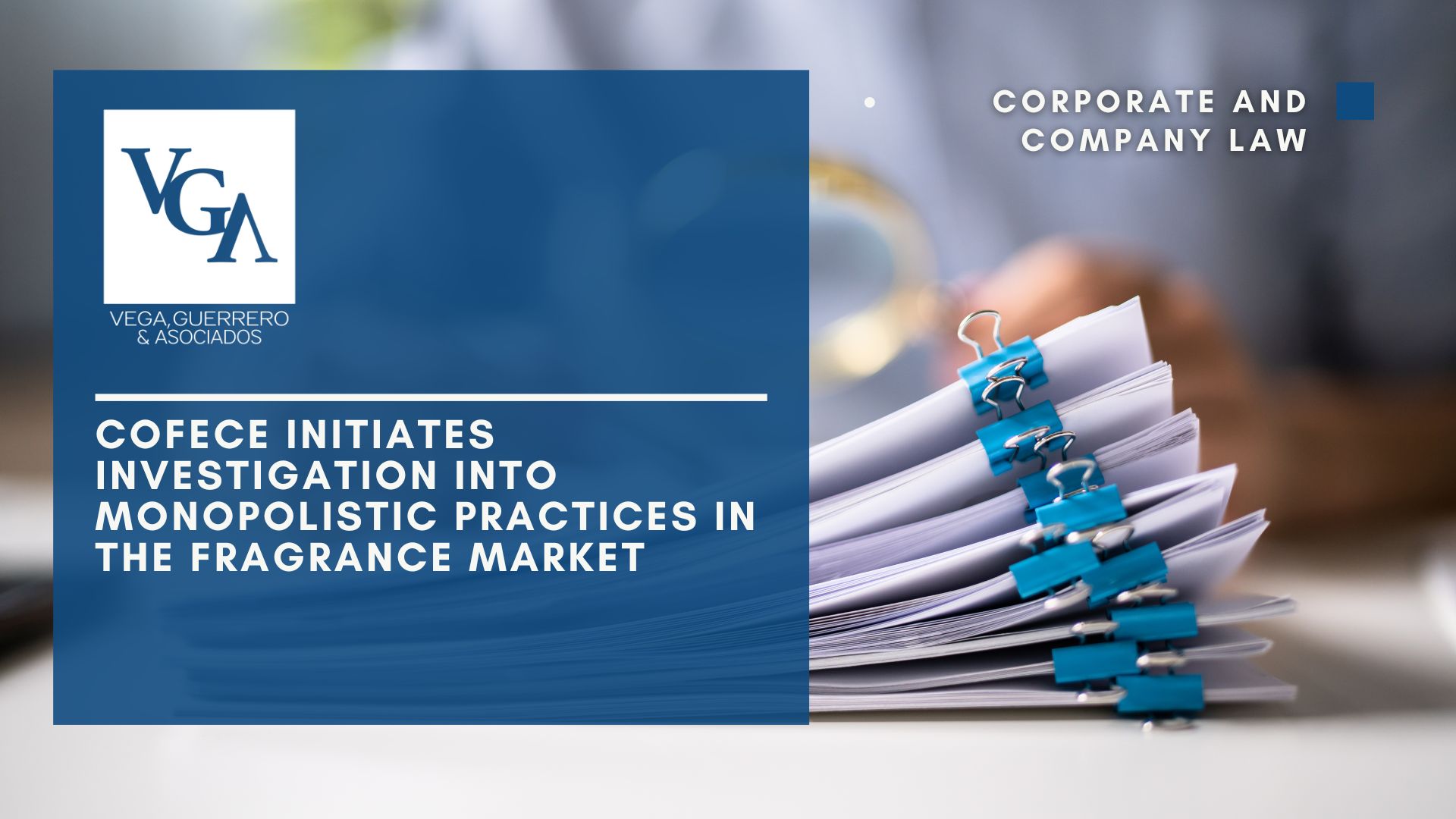By Marco Tena
On August 15, 2024, the Federal Economic Competition Commission (Cofece) published an extract in the Official Journal of the Federation, announcing the initiation of an investigation for the possible commission of absolute monopolistic practices in the market for the manufacture, distribution, commercialization and acquisition of fragrances and fragrance ingredients in Mexico.
What are absolute monopolistic practices?
Absolute monopolistic practices are those agreements or arrangements between competitors that aim to manipulate the market to the detriment of competition and, therefore, consumers. These practices are prohibited by the Ley Federal de Competencia Económica (LFCE) and may result in severe sanctions for the companies involved.
Research internships
Cofece has indicated that during this investigation it will focus on identifying whether certain economic agents, who compete directly with each other, have engaged in the following practices:
- Price fixing and manipulation: Agreements to fix, raise, arrange or manipulate the selling or purchase price of fragrances or their ingredients, affecting free competition in the market.
- Production or marketing restriction: Covenants to limit the quantity of products available in the market, which may reduce supply and affect both consumers and other market participants.
- Market division: Practices that seek to divide, distribute or allocate market segments among competitors, restricting competition and limiting the options available to consumers.
- Coordination in bidding processes: Arrangements between competitors to coordinate bids or abstain in bidding processes, tenders, auctions, or auctions, undermining the transparency and fairness of these processes.
- Exchange of sensitive information: Cofece also investigates whether there has been an exchange of information between competitors for the purpose of engaging in any of the practices mentioned above.
Cofece’s precedents in sanctions for monopolistic practices
Cofece has had several prominent cases in which it has severely sanctioned companies for engaging in absolute monopolistic practices. A relevant example is the case of the Expandable Polystyrenes Industry.
In 2017, Cofece sanctioned several companies and individuals involved in a cartel in the expandable polystyrene market, a material used mainly in construction and packaging. The companies involved were found guilty of agreeing on prices, dividing markets and coordinating bids in tenders for several years. The penalties imposed exceeded 300 million pesos (File IO-002-2015), setting a precedent in the monitoring and penalization of these practices.
Another notable case is that of Generic Medicines in 2013, where Cofece sanctioned several companies for collusion in public tenders of the Mexican Social Security Institute (IMSS), resulting in million-dollar fines and disqualification of the companies from participating in government contracts (File IO-001-2008).
Sanctions for Monopolistic Practices: The Intent vs. The Effects
It is important to note that, under the LFCE, penalties may be imposed not only when the intent to commit a monopolistic practice is demonstrated, but also when the effects of the actions of the economic agents result in the damages provided by law. This means that even if a company has not intended to restrict competition, if its actions, together with those of other competitors, result in price fixing, market division, or any other prohibited practice, it may be sanctioned.
This effects-based approach seeks to protect competition and consumers more broadly by ensuring that conduct that negatively affects the market is penalized, regardless of the intent behind it. Thus, companies must be particularly cautious not only in their intentions, but in the possible impacts of their commercial strategies and agreements, as they may face significant penalties if their actions are shown to have produced the anticompetitive effects described in the law.
Importance of regulatory compliance
These precedents highlight the importance of companies reviewing and adjusting their business practices to comply with competition laws. Cofece has demonstrated that it is committed to ensuring fair and competitive markets, and does not hesitate to impose significant sanctions when it identifies anticompetitive behavior.
In our firm, we have a team specialized in competition law that can advise companies in the review of their commercial practices and in the management of risks related to economic competition. We invite companies to take proactive measures to ensure compliance with current regulations and avoid possible sanctions.




